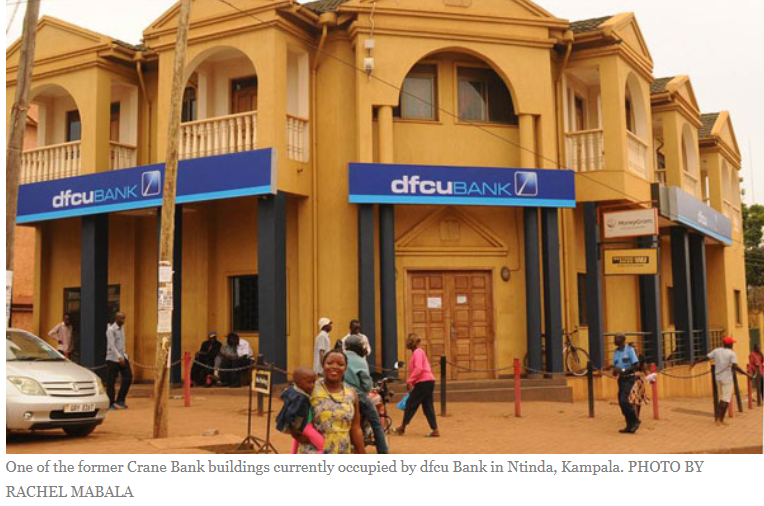Kampala, Uganda, Friday, June 1st, 2018. Over a year after dfcu’s acquisition of Crane Bank, Uganda’s second biggest bank has commenced Bancassurance sales in 66 branches countrywide as the country seeks to increase the number of its nationals covered by insurance policies.
Bancassurance is an arrangement in which a bank and an insurance company form a partnership so that the insurance company can sell its products to the bank’s client base, an arrangement that can prove to be profitable for both parties.
Now the bank’s customers can now access medical insurance, life insurance, funeral and related expenses insurance as revealed this week at a Bancassurance dialogue organized by dfcu under the theme, “Securing a sustainable legacy.”
With the penetration of insurance still very low at 1%, the insurance sector and its affiliated regulatory bodies are developing new channels to increase uptake and influence attitudes about insurance. Bancassurance – the selling of life assurance and other insurance products and services by financial institutions is expected to support this growth agenda.
“Bearing in mind the needs of our customers and the current socio-economic times, we have designed and embedded insurance within some of our existing products to make it easier for customers to appreciate and get the best out of insurance,” said the bank’s Chief Commercial Officer and Executive Director; William Sekabembe.
Martha Aheebwa, the dfcu Bank Principal Officer – Bancassurance said that over the coming months they will engage more with customers to assess their requirements as a basis for enriching their product offering.

Commercial banks are adopting it because selling insurance products gives them a new and lucrative revenue stream without high new setup costs. Besides, this fee-based income is essentially risk-free since the bank simply plays the role of intermediary.
Insurance companies on the other hand see bancassurance as a way for increasing their market penetration and premium turnover at near zero cost. In turn, the customer enjoys the benefits of reduced prices and a wider range of products conveniently.
Traditional brokers lose jobs
In January 2016, parliament passed into law, amendments to the Financial Institutions Act (FIA), which now allow insurance companies to use banks as a distribution channel thereby creating opportunities for growth for both the insurance and banking industry.
Initially, traditional brokers and agents were not comfortable with the idea of having to share their space with banks, research by Turnkey, a leading Pan-African insurance technology and services provider. However, brokers seemed to be more for the idea than agents believing that the entry of banks into the insurance sector will increase retail outlets and raise the penetration of insurance products countrywide. The agents on the other hand were not for it, as to them bancassurance represented a loss in placements and commissions. It does seem these initial fears were justified as current statistics reveal a disruptive shift in the insurance landscape since the entry of bancassurance. According to the Insurance Regulatory Authority of Uganda (IRA), the insurance sector in Uganda has, in the last two years, witnessed an increase in dropout of agents and a considerable reduction in new agent registrations.
While other factors including financial constraints, pressure to meet targets and low commissions, might have also contributed to the declining numbers, the main threat being alluded to by many agents is bancassurance. Agents also see bancassurance as the main reason why insurers are reviewing commissions and customers are getting a raw deal, with the banks not giving them a choice on which policy to buy and where to do it.
While bancassurance might initially have been seen to be taking away business from traditional intermediaries, in the long term it has actually expanded the market and created enough business for resilient intermediaries. And even if bancassurance ends up with a commanding market share, the portion for the traditional intermediaries will still be considerably larger compared to the cumulative business they previously managed. Moreover, traditional intermediaries still have a pivotal role to play especially when it comes to servicing complex insurance products. Banks have limited insurance business experience and are mainly able to handle straightforward products that are simple to explain and service. There is still considerable room in the market for the professional intermediary. Consequently, it makes more sense to put aside the current rivalry and focus on harnessing the collective experience, strategic creativity and innovation of insurers, banks, brokers and agents towards solving our persistent penetration challenge.










